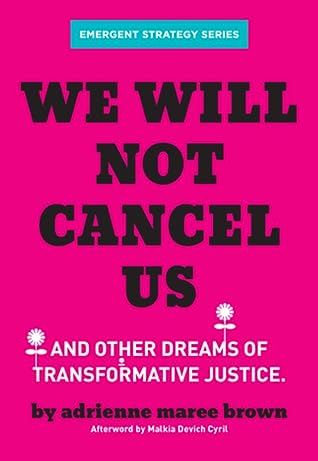More on this book
Community
Kindle Notes & Highlights
Read between
December 6 - December 8, 2024
The U.S., as a nation, does not choose, or love, life. Not in our policies, in our safety practices, in our relationship to the planet and other nations. Not yet, and possibly never before.
The first and biggest thing is that call outs never feel powerful to me as a move to resolve conflict, especially when that conflict is unveiled without the consent of both or all parties in the dispute. Call outs don’t work for addressing misunderstandings, issuing critiques, or resolving contradiction. Call outs feel most powerful when they are used with their tactical intention—for those with less positional, political, economic, or other power to demand accountability to stop harm or abuse.
People mess up. We lie, exaggerate, betray, hurt, and abandon each other. When we hear that something bad has happened, it makes sense to feel anger, pain, confusion, and sadness. But to move immediately to punishment means that we stay on the surface of what has happened. To transform the conditions of the “wrongdoing,” we have to ask ourselves and each other “Why?” Even—especially—when we are scared of the answer.
But if we want to create a world in which conflict and trauma aren’t the center of our collective existence, we have to practice something new, ask different questions, access again our curiosity about each other as a species.


